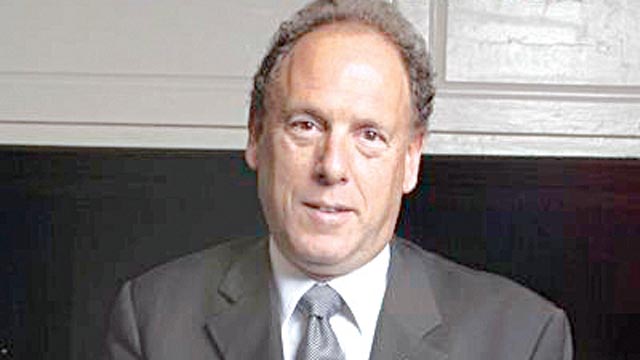 As Americans watch the peaceful transfer of presidential power change hands on the steps of the US Capitol in Washington DC tomorrow at noon GMT-5, many in disbelief or denial, so will a lot of Africans, at home and throughout the diaspora.
As Americans watch the peaceful transfer of presidential power change hands on the steps of the US Capitol in Washington DC tomorrow at noon GMT-5, many in disbelief or denial, so will a lot of Africans, at home and throughout the diaspora.
With no living memory of a US presidential inauguration as contested as Donald J. Trump’s, we will witness a man with no political experience, no real understanding of policy – domestic or international – and a deep contempt for plurality, healthy descent, and a free press, a man whose persona characterizes bullying and whose business practices suggest potential conflicts of interest – assume the most powerful position on the planet.
And Washington DC will thus not only be the arena of official transfer of power, it will also be the nation’s theater for staged disapproval. 200 000 women will march. American writers will assemble at the Library of Congress. Americans have a strong legacy of social protest and civil disobedience; it is in our national fabric to speak up, use the First Amendment of speech and assembly, and to peacefully and sometimes forcefully insist of social justice, racial and gender equality, and hold our elected officials accountable for legal and moral malfeasance. For all its imperfections, this is the defining quality of the American political system, its symbolism. You are free to disagree, and you will get your day in court. At the end of an often long and bumpy road, good wins out, and freedom conquers despotism, the institutions of justice are stronger than those who attempt to corrupt them. American political life and the Hollywood sage join narratives in what is for the most part true, and more importantly, a narrative we – and much of the world – needs for emotional sustenance.
What American citizens and voters often forget to consider is that the American president, typically referred to as the leader of the free world, truly means something huge to the world beyond its own borders, a global audience that lives in nations each confined by its own degree of freedom or lack of. I will never forget that night in November 2008 when the news came in that Barack Obama was elected president of the United States and my close friend Hassan called me from Senegal, weeping on the phone, so proud, so moved and giddy, that the American people had had the courage to elect a black president. He actually thanked me, me, just one voter among millions. The same friend called me after the news of Donald Trump’s upset victory of Hillary Clinton, weeping too but with other tears. The man who threatens to categorically ban Moslems from the world’s freest country, the man whose verbiage proves a deep disregard for democracy, will be taking charge. This time it was shame I felt.
Africans need an American president who represents not only hope but the larger belief that there is a moral guide leading the democratic ethic who is duly elected, abides by the rules of legal and social justice, understands and embraces the concept that good governance relies on values, respect for all citizens. I remember interviewing former Malian President Omar Alpha Konare who told me – uncharacteristic of an African Head of State – that one of his greatest legacies will be his respectful stepping down from power at the end of his mandate. African leaders need to lead by example, he said. Many praised former Nigerian President Goodluck Jonathan’s gracious and swift concession to Muhammadu Buhari as his greatest contribution to Nigerian democracy.
Leadership by example that is what has so many of us worried about Donald Trump. His brutish contempt for journalists doing their job, his condescension to women and minorities, the handicapped, and anyone with a different view, is so destructive to the larger American gift to hopeful and aspiring citizens around the world. America has always been the spiritual home of those who dreamt of having a fair chance. We need a moral authority in the White House more than anything. The job is challenging and thankless but the man or woman in the Oval Office must instill the posture of moral incorruptibility and basic human descency.
American voters rarely think about what it feels like to wake up in the morning in your own land and feel scared or uncertain about your own ability to speak up or disagree. Or what it feels like living in a country where you know the elections will not be fair, or that the elections will be gerrymandered or the constitution amended to allow the current ruler to remain in power for even longer.
We in America are contemplating the consequences of the next four years with President Trump. We have no idea what it feels like to live a lifetime with a President Biya (41 years), a President Obiang (37 years), a President dos Santos (37 years), a President Mugabe (36 years), a President Museveni (30 years), a President Bashir (27 years), a President Deby (26 years), a President Afwerki (25 years), a President Jammeh (22 years, recently defeated but refuses to step down), a President Sassou (19 years), a President Kagame (17 years), a President Bouteflika (17 years), a President Guelleh (17 years), a President Kabila (15 years), a President Gnassingbe (11 years), a President Nkurunziza (11 years)…
The Trump presidency chips away at the greater hope that America represents. As Donald Trump places his hand on the Bible in Washington on Friday, I’ll be thinking of what this means to Africans everywhere.
• Applefield (Twitter:
@davidapplefield) is Global Adviser for The Guardian
[ad unit=2]



